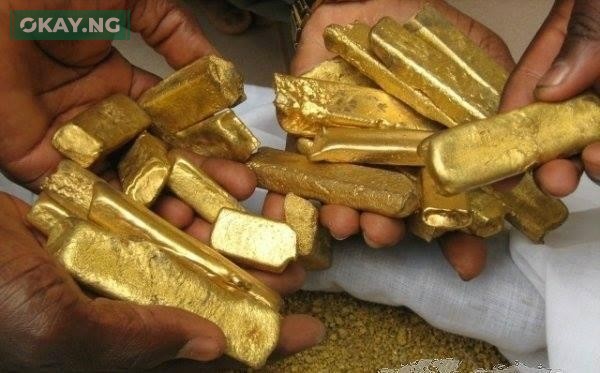Ghana’s gold sector is experiencing a significant boom, propelling the nation’s economic growth with export revenues reaching a remarkable $11.6 billion in 2024. This figure represents a staggering 52.6% increase from the $7.6 billion recorded in 2023, solidifying gold’s critical role in the country’s economic landscape. Notably, the sector now accounts for 57% of Ghana’s total export revenue, with small-scale miners contributing a substantial $5 billion.
“This remarkable surge in gold exports underscores the sector’s pivotal contribution to our nation’s economic expansion,” a government official stated, highlighting the industry’s growing importance.
As Ghana strengthens its position as Africa’s leading gold producer, it is also becoming a key supplier to international markets. Asia, led by the United Arab Emirates (UAE), is the primary importer of Ghanaian gold, absorbing 53.1% of the continent’s exports. Europe, with Switzerland as the dominant recipient (60.2%), and Africa, where South Africa takes the lead (60.5%), follow closely.
For small-scale miners, the $5 billion contribution represents livelihoods, families supported, and dreams realized. However, it also raises questions about sustainability, environmental impact, and equitable distribution of wealth. Are these miners receiving fair compensation? Are they equipped with the necessary resources and training to operate safely and responsibly?
The upcoming Mining in Motion conference, scheduled for June 2-4, aims to further capitalize on this momentum, connecting global investors with opportunities within Ghana’s gold value chain. “We are excited to facilitate deal signings and strengthen trade relations with our leading gold export markets,” organizers stated, emphasizing the event’s potential to drive further growth.
Read Also: Ghana Inflation Eases, But Economic Challenges Persist
Looking beyond the dominant markets, Ghana’s gold exports extend to North and Latin America, with Canada and Brazil absorbing significant portions, respectively. In Europe, countries like the Netherlands, Spain, and Germany also contribute to the demand for Ghanaian gold.
The implications of this surge are multifaceted. On one hand, the increased revenue provides vital resources for infrastructure development, social programs, and economic diversification. On the other hand, it necessitates careful management to ensure long-term sustainability and prevent over-reliance on a single commodity. As a journalist, I find myself pondering the future: how can Ghana leverage this golden opportunity to build a more resilient and equitable economy?
The focus now shifts to ensuring that the benefits of this gold boom are shared across all segments of society, promoting responsible mining practices, and diversifying the economy to mitigate potential risks. This is not just about numbers; it’s about the people whose lives are intertwined with this precious resource.













